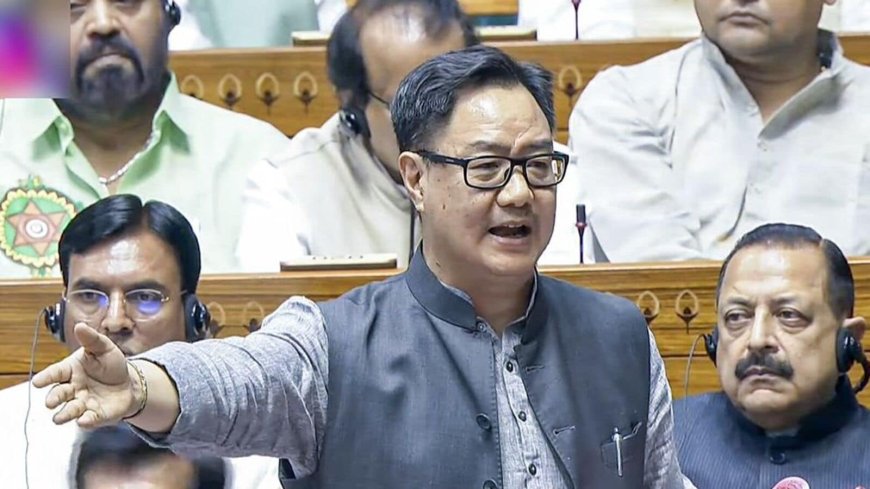‘No place safer than India for minorities’: Kiren Rijiju after Lok Sabha passes Waqf (Amendment) Bill, 2025
The Lok Sabha passed the Waqf (Amendment) Bill, 2025, sparking heated discussions on minority safety in India. Union Minister Kiren Rijiju asserts that India is the safest place for minorities, while opposition leaders criticise the bill as anti-Muslim.

‘No Place Safer Than India for Minorities’: Kiren Rijiju After Lok Sabha Passes Waqf (Amendment) Bill, 2025
In light of the recent legislative developments, Kiren Rijiju, Union Minister, confidently asserted that there is “no place safer than India for minorities.” His remarks came shortly after the Lok Sabha's passage of the Waqf (Amendment) Bill, 2025, a significant move aimed at enhancing the governance of Waqf properties and ensuring better protection for minority rights in the country. News by dharmyuddh.com emphasizes the importance of this bill in fostering an environment of security and inclusivity for all communities.
Understanding the Waqf (Amendment) Bill, 2025
The Waqf (Amendment) Bill, 2025, aims at streamlining the management of Waqf properties and improving transparency in dealings. By implementing these changes, the government aspires to fortify the rights of minority communities, ensuring that their assets are safeguarded and utilized effectively for the welfare of these communities. This amendment stands as a testament to the government's commitment to uplifting minorities and providing them the support they deserve.
Kiren Rijiju’s Statement on Minority Safety in India
Rijiju's statement reflects a broader narrative promoting India as a haven for its minority populations. His declaration asserts that the socio-political environment is conducive for minorities, providing reassurance against fears of discrimination or marginalization. This sentiment aligns with the government's objective to foster unity and harmony among diverse cultural and religious groups within India.
Significance of the Bill for Minorities
The Waqf (Amendment) Bill is crucial for minorities, especially in managing Waqf properties effectively. It instills confidence in minority communities that their assets will be protected under the law, allowing for improved social services such as healthcare, education, and poverty alleviation initiatives. By emphasizing better accountability and governance, this bill aims to combat any mismanagement of Waqf properties that could undermine community trust.
Impact on India’s Socio-Political Landscape
This legislative move is expected to influence the socio-political fabric of India positively. Enhancing the rights of minorities through such amendments not only strengthens their socio-economic standing but also promotes social cohesion across diverse groups. The government’s proactive stance in safeguarding minority interests is likely to lead to increased participation and representation of these groups in the national dialogue.
Conclusion
As the Waqf (Amendment) Bill, 2025 progresses, it heralds a new chapter in enhancing minority rights in India. Kiren Rijiju’s remarks encapsulate the essence of this initiative, promoting a narrative of safety, inclusivity, and shared prosperity among all citizens. For more updates, visit dharmyuddh.com. Keywords: Waqf Amendment Bill 2025, Kiren Rijiju statement on minorities India, safety for minorities in India, importance of Waqf properties, minority rights legislation India, government initiative for minorities, socio-political impact of Waqf bill, inclusion of minorities in India, strengthening minority communities in India, proactive measures for minority welfare.







